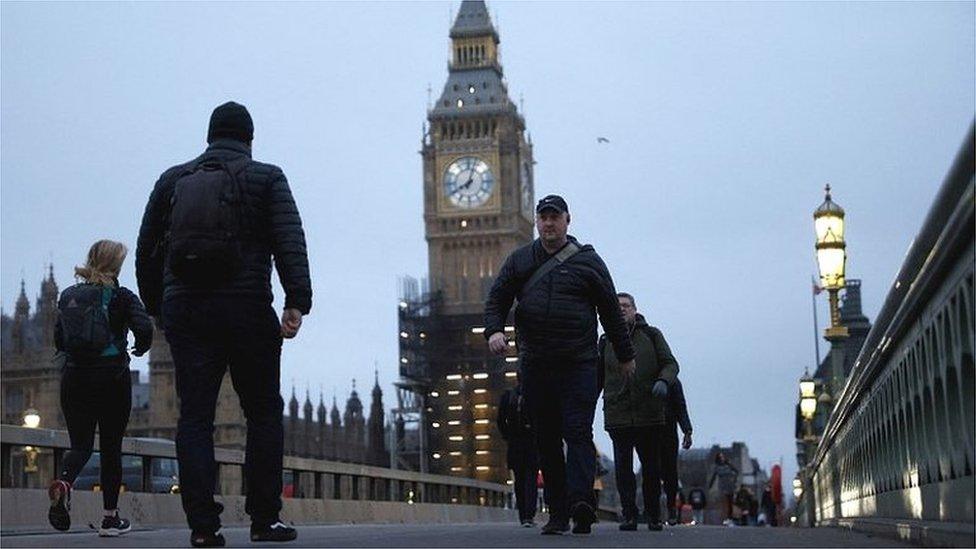What's happening in Parliament on Tuesday?
- Published

In the Commons, the day kicks off with Treasury questions, and you can expect lots of questions on the cost of living, including on the risk of fuel poverty for pensioners.
But there are also questions on compensation for Equitable Life policyholders, and whether he should be taxing fossil fuels, following the COP26 climate summit.
There are no statements or urgent questions, so MPs move straight onto the ten minute rule bill - the chance for an individual MP to air a concern.
Labour's Helen Hayes wants to give social housing tenants the right to continuity of secure tenancy when they are forced to move out because of a threat to their personal safety.
And then MPs will turn to Opposition Day debates, with two Labour motions, focusing on non-party related issues.
The first is on tackling fraud and government waste, following last week's resignation by the Treasury minister, Lord Agnew, who complained of a lack of action to recoup money lost to fraud from the emergency Bounce Back loans made during the pandemic.
The second motion calls for a windfall tax on oil and gas producers, to fund help for families and businesses hit by rising energy prices.
There's an SNP amendment urging the UK government to work with the Scottish government to provide a Just Transition Fund to help communities currently supported by the oil and gas industries.
In Westminster Hall, the Commons second debating chamber, Conservative Alexander Stafford has a debate on social prescribing (11:00) and Labour's Marsha De Cordova has a debate on disability assessments and the Health and Disability Green Paper (14:30).
Intriguingly, Chi Onwurah has a debate on Hadrian's Wall in Newcastle's West End (16:30).
Committee inquiries
What committee sessions are on? The Digital, Culture, Media and Sport (10:00) winds up its inquiry into influencer culture with evidence from the Digital minister, Chris Philp.
Health and Social Care (10:00) looks at reforming NHS litigation with Health Minister Maria Caulfield and Helen Vernon, the chief executive of NHS Resolution.
The focus here is on the reform of lengthy and costly NHS litigation system and the case for removing the need to prove clinical negligence in favour of a less adversarial option which would encourage clinical learning when errors are made. They are hearing from a witness whose daughter suffered a severe injury at birth in considering the impact on families of pursuing negligence claims.
Environment Food and Rural Affairs questions EFRA Secretary George Eustice (14:30) on the work of his department - which will cover everything from food policy to flooding and air quality.
What about the House of Lords? Questions start at 14:30, on restoring legal aid for welfare cases, and making railway stations more accessible.
The main business is the detail of the Nationality and Borders Bill - it's committee stage day two.
And there will be a short debate on the government's assessment of the current ambulance response times and the action being taken to reduce them.
